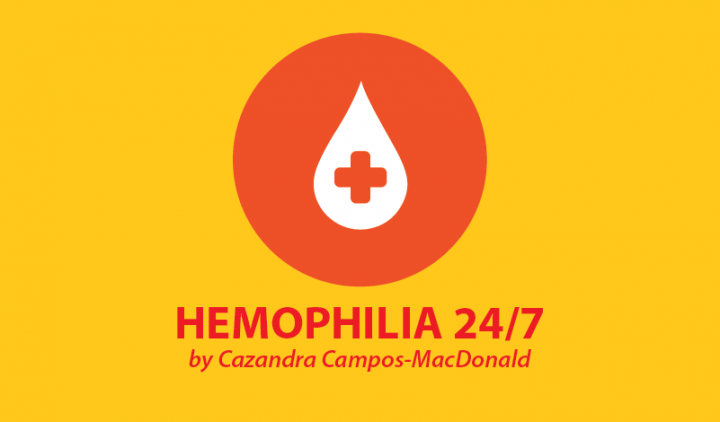The Words I Needed to Hear When My Son Was Diagnosed

The coronavirus is turning lives upside down. A good friend recently tested positive, and when they told me, I was uncertain about how to respond.
Should I say I’m sorry? That they will be OK? Not to worry? Knowing what to say isn’t easy. It reminds me of when my firstborn son, Julian, was diagnosed with severe hemophilia.
A hemophilia diagnosis lasts a lifetime. Coming to grips with that was devastating, and no matter what the doctors told me, I never seemed to accept that my son would be able to live a normal life.
Some immediate family members didn’t really know what to say. “We’ll teach him how to be careful,” Julian’s uncle remarked, while his aunt broke down in tears. But my mother-in-law, Ruby, handled Julian’s diagnosis with grace and beauty. After I told her the news, Ruby nodded, hugged me, and asked, “So, when can I take him to the zoo?” Love conquers all.
I did not need to hear all the intricacies of the disorder. It was too much to comprehend. Of course, by giving me this information and educating me as quickly as possible, the doctors were doing what they needed to do. But it was not what I needed to hear.
Knowing that my family loved my son meant the world to me, but getting my heart to settle required hearing from another mom in the bleeding disorder community, Lisa.
As we spoke on the phone, Lisa shared her story with me and answered my questions. I don’t remember the specific details we discussed, but when I hung up the phone, I felt as if the world’s weight had been lifted from my shoulders. I finally understood that my son would be OK because we were not alone. Julian’s journey would just be different.
I needed to hear that message of hope.
While some of my family members were never comfortable with hemophilia, over time, I learned that I couldn’t change how they felt about Julian’s condition, regardless of how much education I offered. I sought out hope. Attending events hosted by the local bleeding disorders chapter provided many opportunities for me to hear other people’s stories about how they were raising their children with hemophilia. We all had so much in common, and bonding together as a community — as a family — gave me hope. I realized I was not alone.
When someone discloses a diagnosis, getting the answer exactly right isn’t what’s most important. The right words might not even exist sometimes. Remaining hopeful is key to helping others who believe they are out of options. When all else fails, being present with a hug, a shoulder to cry on, or an ear to listen with can be what makes the difference in someone else’s life.
Hope never fails.
***
Note: Hemophilia News Today is strictly a news and information website about the disease. It does not provide medical advice, diagnosis, or treatment. This content is not intended to be a substitute for professional medical advice, diagnosis, or treatment. Always seek the advice of your physician or another qualified health provider with any questions you may have regarding a medical condition. Never disregard professional medical advice or delay in seeking it because of something you have read on this website. The opinions expressed in this column are not those of Hemophilia News Today or its parent company, Bionews, and are intended to spark discussion about issues pertaining to hemophilia.







Leave a comment
Fill in the required fields to post. Your email address will not be published.